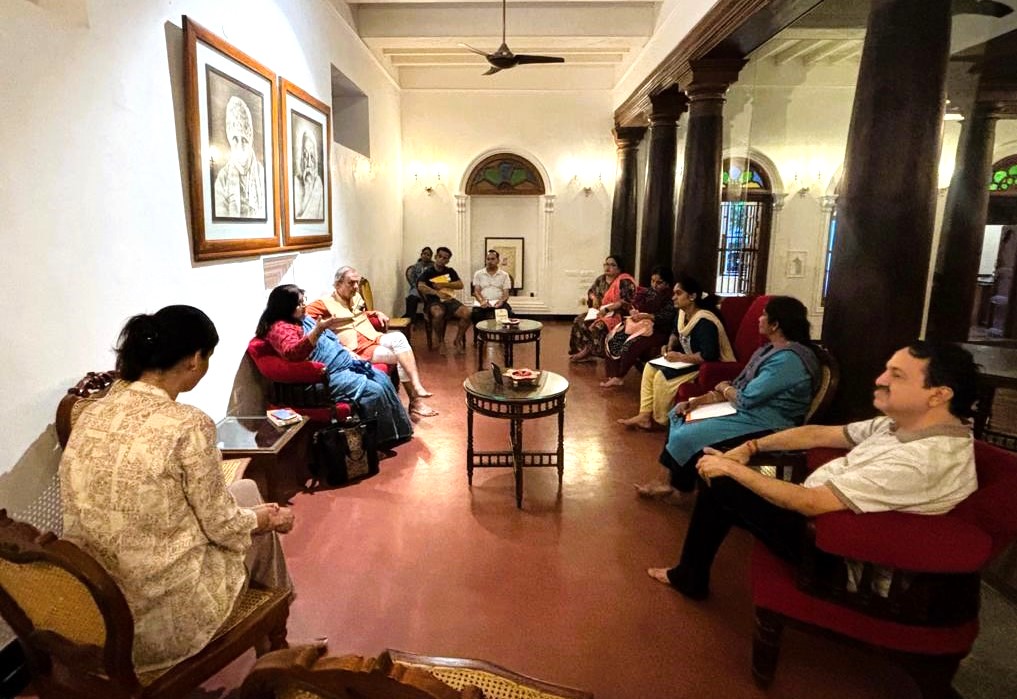Date: July 12, 2025
Venue: Matriniketan
As part of the residential programme organized by Uditam: Institute for Integral Healing, Sri Aurobindo Society, Dr. Beloo Mehra, Director, BhāratShakti, was invited to facilitate a group discussion on Saturday, July 12, 2025. Most of the participants were teachers from two schools connected with Sri Aurobindo Society, for her session, Dr. Mehra focused on the topic – Teachers of the Mahabharata.
Dr. Mehra began the session by sharing that since we just celebrated Guru Purnima, a day marking the Jayanti of Rishi Veda Vyasa who authored the Mahabharata, it was appropriate to spend some time reflecting on the lessons we may be able to draw from the stories surrounding some of the most notable teachers that we meet in the Mahabharata. She also highlighted that in Indian tradition we have several terms which can mean ‘teacher’, but each of the terms have unique meanings. She briefly spoke about terms such as Guru, Acharya, Pandit, Shikshak, and pointed out how each term means something specific.
With a small preface on the significance of the Mahabharata as an inquiry in human condition and its impact on the collective Indian psyche, she invited the participants to identify a few teachers in the Mahabharata about whom they remember some specific legends.
The group identified a few most prominent ones – Dronacharya, Parashuram, Bhishma and of course Krishna. The main stories about these characters, especially concerning their role as teachers, were brought out in an interactive manner. Some participants asked questions while others filled in the details, and wherever necessary, Dr. Mehra provided the necessary background and context to expand or deepen the collective understanding.

Through this interactive approach, a few key aspects related to the work of teachers were identified, primarily concerning the challenges posed by egoism and self-centeredness, complexity of teacher-student relationships, fairness and impartiality toward all students, the necessity for teacher to constantly progress, the importance of facilitating the student’s discovery of the inner teacher or guide, and more.
Most of the time was spent on discussing Sri Krishna as the Divine Teacher. Several examples of his work as a guide and teacher for Arjuna were discussed in an interactive manner. Through these examples, it was also pointed out that a teacher’s inner state of consciousness is what truly matters in a teaching-learning context. The frank and friendly nature of relationship between a student and a teacher was highlighted, while at the same time, the importance of student’s attitude of openness and receptivity to the teacher’s guidance and teaching was also stressed.
The session concluded with a final discussion on the importance of a teacher’s influence. Sri Aurobindo’s insight about the teacher being an instructor, example and influence was briefly discussed by Dr. Mehra as she summarised the key points brought out during the discussion about the teachers of the Mahabharata.
